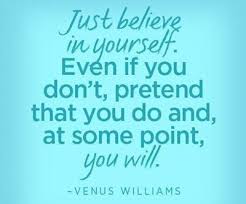|
With examinations just a few weeks away, I want to give you some simple and effective tips for your teens or your success. It’s time to elevate your mind to that of a winner and take action for success! Revising can be a tedious task, with far more pleasurable activities available; indeed, sometimes staring into space seems preferable to sitting down and focusing on the task at hand. So let's begin by changing the focus and preparing your mind not only for success, but, for actually wanting to revise! Shift Your Focus: If what you are currently thinking about is not working for you,stop thinking. and change your focus. When it comes to exams, this can often mean shifting your thoughts from 'having to revise' and what you may be missing out on by revising, to focusing on the ultimate goal that you want to achieve; the grades you want, the feel good factor of knowing you have done your best, to realising your highest grade score, being accepted into your chosen University, a career opportunity or being able to demonstrate your aptitude, discipline and potential for initiating an entrepreneurial project. You are not just revising for an exam, but through the act of revising, you are elevating your mind to that of a winner; to someone who is prepared to do that hard work, and to dedicate time and effort for something greater, outstanding, beautiful, rewarding, spectacular, inspiring, monumental and important to you. See revision as a practice round to a bigger picture; to the story of the type of person you want to be. See it as an act of patience, dedication, commitment and loyalty to your greater good. Task #1: Ask yourself: What is your big and exciting dream? How will exam success support you in achieving this? If you don't have a big and exciting dream yet, ask yourself, how will you feel knowing you have given this examination your very best? And, how will you feel if you don’t get the grades you are capable of because of short term pleasure distractions? What do you really want? Believe In Yourself: You don't have to believe in yourself, to start believing in yourself, you just make a decision to start believing in yourself, and to tell yourself all the reasons that you can succeed. Task #2: Make a list of 10 reasons why you can do well in your exam if you give it your best shot, starting now? Manage Your Stressors: When you can identify what exactly is creating anxiety and stress for you, you are then in a position to select appropriate management tools. Stressors appear to be the people, situations, or events that create feelings of stress, anxiety and fear in you. However, this is a common misconception. The actual stressors are the thoughts, beliefs, fears, or images you hold in your mind about yourself or your life. Task# 3: a) Make a list of everything that is creating feelings of stress or anxiety for you now. b) Beside each item listed, explain why this is creating stress for you? c) Ask yourself, is this actually a true fact, or, is it a fear or a worry about what may be? Common stressors include statements or beliefs that begin with:
These statements generate stress responses in the brain. If you notice these statements in your own words, I would like you to change your language to calm language: Use Calm Language: Calm language does not generate stress, but rather opens you up to solutions and possibilities which actually generate feelings of calm. Replace you stress creating language with the following solutions orientated and calming language:
Once you have identified your stressors and analysed how your own language may be contributing to this, and what you can do to change this, the next stage in preparing for exam success, is to create a stress management plan. Stress Management Plan: The first thing to recognise is whether stress is working for you or against you? Some students wait for the pressure of last minute revision, believing this aids focus, and for some people this works. Others experience stress for many weeks, during a phase of procrastination. This can easily be averted by commencing revision early. The question is, is feeling stressed worth it? Overcome procrastination
The Benefits of overcoming procrastination: When it comes to procrastination, think of the underlying stress you feel when you are being distracted. In the back of your mind, you know fear of failure or the pressure to revise is there. By creating a balanced study plan, with time for rest, relaxation and fun, and committing to study at the designated times, through organisation and time management, you prevent stress build up and you get to have better quality relaxation and fun time, knowing you are on track with your revision. Revision Preparation Skills:
Target/Goal What I need to do? With help from? Target date Date completed (Chapter/subject) Retrieving information
Visualise Your Success: See yourself going calmly into the exam, knowing you have done your best, that you have revised well and now all that remains is for you to do your best. There is no need for worry now, the work is done and what shall be, shall be. Visualise yourself sitting at your desk talking a calm deep breath and with the papers in front of you, feeling calm, knowing you can do this, and that everything is going to be okay, no matter what happens. See yourself feeling calm and enjoying the exam that you have worked so hard for, feeling happy with yourself for your commitment to the revision process and the rewards that may soon follow. Finally, see yourself opening your examination results letter and feeling happy with yourself. GOOD LUCK!!! :-) Get in touch to ask about Exam Success Coaching, to improve study and focus skills, stress and anxiety management, organisation, time management and confidence. +34 620 741 361 [email protected]
0 Comments
This month I have been giving psycho-educational talks on themes relating to how thoughts, obsessions, addictions, and attachments can lead us into ways of thinking, feeling and living that are not necessarily our truth, but rather, are just our state of mind in a moment, or a period of time. I see the mind as an ocean of currents, swirling in constant motion, if we allow, so that just as emotions come and go and flow, so do our thoughts. However, sometimes we do not let go, but hold on to an idea, a fear, an obsession, a belief, a want, a need, and we fixate, holding it and ourselves in a timeless space, in limbo: out of the natural currents and flows of mind and life, and in a state of dis-ease. In most cases, holding on to anything prolongs the agony of desire; of wanting, of needing, of what was or what could be. In this state of mind; out of the natural rhythm and flow of mind, we miss life; we are not living in the world, but lost in thought; acting out the stories and dramatizations of a mind that often is not serving us well, indeed, living a story that may not even be our truth.
Our thoughts are not our truth, they are many truths, from many people and situations, from impulses, automatic reactions, experiences and events. These are all limitations of a greater truth. Your truth, is what matters to you; your values,your perception, your unique feeling and expression. Select those thoughts and images that support the story you want to experience, then expression of yourself you want to be and share, and the responses you choose to make. By recognising that what we are thinking, feeling and doing, and then asking: ‘Is this serving my highest good, my real truth, my growth and the direction in which I want to walk?’ we can then decide if we need to hold on to these thoughts or behaviors, or to try to allow the thought to keep flowing, guiding the mind to a more positive, lighter and brighter place. Writing a brighter story begins with the choice to do so, and the dedication to our truth; to the story we want to write, as we let go of those stories in our mind that we no longer want. Ask yourself:
|
Follow me on Instagram
Archives
July 2024
|
Copyright Antonia Behan 2024. All rights reserved.
Based in Gibraltar and Spain
Sotogrande 11310, San Roque, Cadiz, Spain
Grand Ocean Plaza, Ocean Village, Gibraltar GX11 1AA
Based in Gibraltar and Spain
Sotogrande 11310, San Roque, Cadiz, Spain
Grand Ocean Plaza, Ocean Village, Gibraltar GX11 1AA




 RSS Feed
RSS Feed